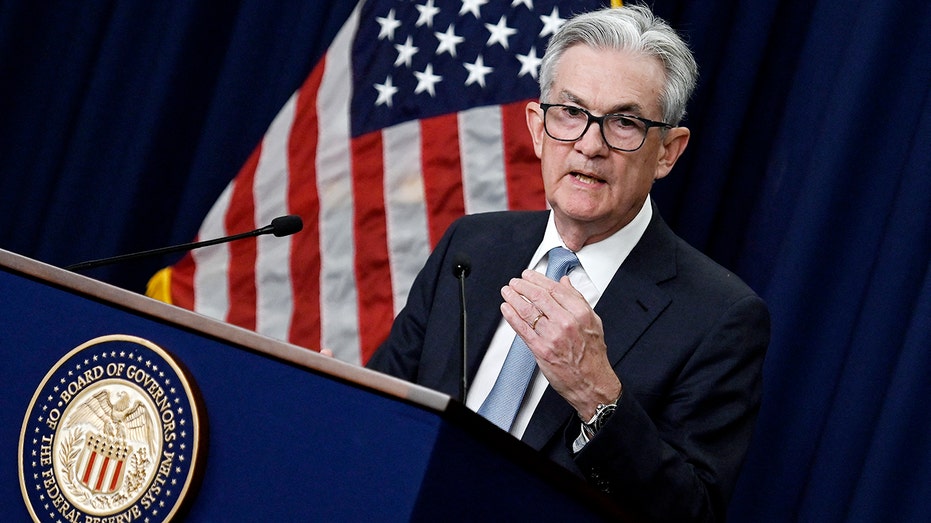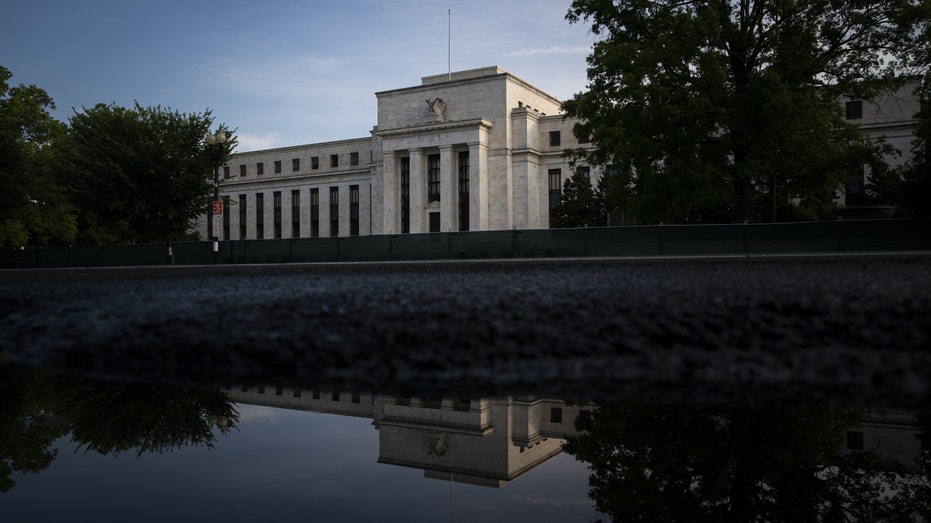Fed to keep interest rates high all next year, making a recession very likely: Survey
Fed likely to raise rates by 50 basis points next week, economists say
Fed's inflation narrative 'must remain hawkish' after hot November PPI: Kenny Polcari
SlateStone Wealth chief market strategist Kenny Polcari discusses whether the U.S. economy passed peak inflation after November's wholesale inflation report beat expectations on 'Varney & Co.'
The Federal Reserve is likely to keep interest rates elevated through 2023, dashing Wall Street's hopes for rate cuts in the second half of 2023 and almost guaranteeing a recession.
That's according to a group of economists surveyed by Bloomberg, who projected the U.S. central bank will raise the benchmark federal funds rate to a peak of 4.9% in 2023 and hold it there until 2024.
The forecast comes days before the Fed's final meeting of the year, during which policymakers are widely expected to raise rates by 50 basis points following four consecutive 75 basis-point hikes. Officials will announce their decision on Wednesday at 2 p.m. at the conclusion of their two-day meeting.
The Fed will also release its first quarterly forecasts since September, providing insight into where it sees the U.S. economy headed over the next few years. Should policymakers signal that they expect rates to remain high through 2024, it could deliver a hawkish shock to the markets, which are currently betting that rates will be cut in the second half of the year.
THE FED'S WAR ON INFLATION COULD COST 1M JOBS

Federal Reserve Chair Jerome Powell speaks during a news conference on interest rates, the economy and monetary policy actions, at the Federal Reserve Building in Washington, D.C., on June 15, 2022. (Photo by Olivier Douliery/AFP via Getty Images / Getty Images)
The economists in the survey expect the Fed to cut rates to 4% by June 2024 and to 3.5% by the end of that year. They also expect Fed officials to indicate they are bracing for slower growth in 2023 and slightly higher unemployment than they previously laid out in September.
The survey of 44 economists was conducted Dec. 2-7 ahead of the Fed's meeting.
Chairman Jerome Powell signaled at the end of November that the U.S. central bank will slow its interest rate increases at its meeting next week, but stressed that policymakers have more work to do in order to crush stubbornly high inflation.
"The time for moderating the pace of rate increases may come as soon as the December meeting," Powell said during a speech at the Brookings Institute in Washington, D.C. "Given our progress in tightening policy, the timing of that moderation is far less significant than the questions of how much further we will need to raise rates to control inflation, and the length of time it will be necessary to hold policy at a restrictive level."

The Marriner S. Eccles Federal Reserve building in Washington, D.C., on July 6, 2022. (Photographer: Al Drago/Bloomberg via Getty Images / Getty Images)
Still, he noted that "ongoing increases will be appropriate" and stressed that the focus on rate hike speed is less important than the question of how long rates should be held in restrictive territory.
The Fed raised rates by 75 basis points at the beginning of November for the fourth straight meeting as it tries to wrestle inflation closer to its 2% target with the most aggressive tightening since the 1980s. The latest move put the target range of their benchmark rate to 3.75% to 4% – well into restrictive territory – from nearly zero in March.
GET FOX BUSINESS ON THE GO BY CLICKING HERE
Although he acknowledged that inflation has shown early signs of cooling – consumer prices rose 7.7% in October from the previous year, the slowest pace since January – Powell pushed back against any assumptions that inflation will continue to moderate.
"It will take substantially more evidence to give comfort that inflation is actually declining. The truth is that the path ahead for inflation remains highly uncertain," he said, adding: "Despite the tighter policy and slower growth over the past year, we have not seen clear progress on slowing inflation."





















